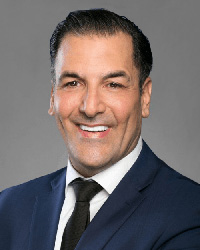News:
Owners Developers & Managers
Posted: December 5, 2008
IFMA/GNY sustainability trifecta: Part one of a huge success
The first of three sessions exploring what the City of New York Mayor's Office is promoting to make the city the most sustainable large city in the country was recently sponsored by the Greater New York chapter of IFMA. The event was held at the NBC Studios at Rockefeller Center and attended by over 50 members and guests.
The meeting focus was how the city sustainability initiatives can impact the private building sector and vice-versa. The ninety minute presentation included a fascinating PowerPoint and a lively Q&A. The city was represented by Julie Hughes, assistant vice president for energy efficiency for the New York City Economic Development Corporation which is responsible for coordination of PlaNYC, the Mayor's long term plan to meet the City's greenhouse gas (GHG) reduction goals. She introduced Adam Procell, vice president and director of strategic development, energy and power services for DMJM HARRIS AECOM, which is serving as consultant to the City. DMJM HARRIS AECOM is a leading global firm in energy, facilities, environment and transportation. The firm is a $4.7 billion company with 1,200 employees in New York City and clients that include CUNY, SUNY and NYPD.
Procell listed the challenges facing commercial facilities as rising energy costs, aging infrastructure, lack of capital, corporate social responsibility initiatives, climate change and emissions reduction strategies and carbon regulation. The city sustainability initiatives were addressed in the context of these challenges with the difficulties faced by facility managers. He discussed the city's planning approach and process and the resulting sophisticated modeling developed by MDMJM HARRIS AECOM. The object of the modeling is to enable the measurement and feasibility of specific projects aimed at achieving the PlaNYC goals for the environment.
Specific projects were addressed. For example, a GHG emissions model for existing buildings was discussed. Projects in this category included setting standards for predictive and preventive maintenance, steam trap maintenance, boiler controls and water treatment, temperature settings and equipment sequencing for optimum operation. As the ultimate sustainability initiative for an existing large commercial building, retrocommissioning was recommended. This would include analyzing current operation and anomolies, as-designed conditions, energy use equipment performance, control sequences and recommended O & M and capital improvements.
Potential capital improvements for existing buildings would fall into categories such as lighting, cooling, office equipment, building shell, building controls, and specific uses such as data centers that consume much energy. Emerging technologies such as new generation BMS which can optimize energy to the hours and type of occupancy; fiber optic daylighting; mixed-mode ventilation and water consumption reduction were all discussed.
The city's model for its own GHG emissions reduction was reviewed. Investment costs were compared with annual savings and payback periods were outlined. As presented, the city's plan breaks even on a cash flow basis by 2013 and on a cumulative basis by 2015.
Much of the Q & A focused on the challenges of facility and property managers and building owners in developing and implementing sustainability programs, especially in New York City where much space is leased, adding to the legal and financial complexity.
There was consensus at the meeting however. Sustainability is here to stay and will play an increasingly important role in facility management, especially in New York City. And we can expect more regulation over time. Keeping up with what is happening is critical for all facility managers.
Watch for the next IFMAGNY Sustainability Presentation, parts two and three.
John Poblocki is principal of Real Estate Cost Strategies, LLC and IFMAGNY PR committee member, New York, N.Y.
MORE FROM Owners Developers & Managers
Related Cos. and Sterling Equities open housing lottery for Willets Point Commons
Queens, NY Queens Development Group (QDG) – a joint venture between Related Companies and Sterling Equities – in partnership with the New York City Department of Housing Preservation & Development

Quick Hits
Columns and Thought Leadership

The CRE content gap: Why owners and brokers need better digital narratives in 2026 - by Kimberly Zar Bloorian
As we head into 2026, one thing is clear: deals aren’t won by who has the best asset; they’re won by who presents it best. Yet many owners, operators, and brokers are entering the new year with outdated photos, inconsistent branding, and limited digital presence. This

Strategies for turning around COVID-distressed properties - by Carmelo Milio
Due to the ongoing pandemic, many landlords are faced with an increasing number of distressed properties. The dramatic increase in unemployment and reduction in income for so many has led to a mass exodus out of Manhattan, an increase in the number of empty rental units






.gif)


.jpg)
.gif)